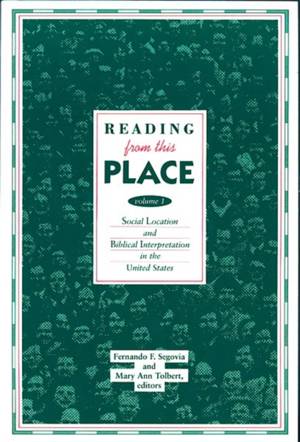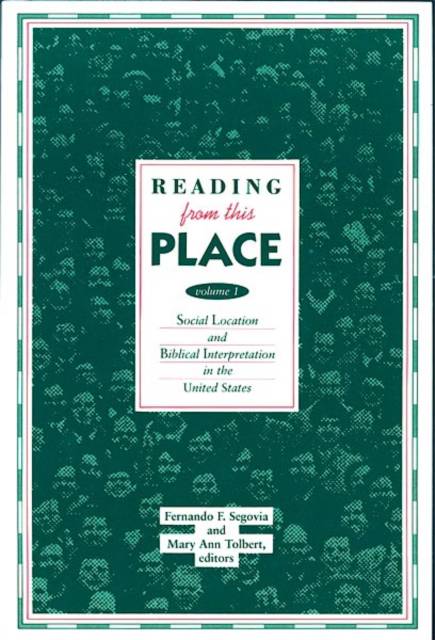
- Retrait gratuit dans votre magasin Club
- 7.000.000 titres dans notre catalogue
- Payer en toute sécurité
- Toujours un magasin près de chez vous
- Retrait gratuit dans votre magasin Club
- 7.000.000 titres dans notre catalogue
- Payer en toute sécurité
- Toujours un magasin près de chez vous
Reading from This Place, Volume 1
Social Location & Biblical Interpretation in the U.S.
Fernando F Segovia, Mary Ann TolbertDescription
Are some readings of the Bible more objective than others? More privileged? More true? How does one's own life situation shape one's reading of the text? What will acknowledgment of the validity of a variety of perspectives mean for historical-critical methods of interpretation?The present dizzying pluralism of "locations" not only of ethnicity, class, and gender, but also of social and religious standpoints presents a daunting challenge to older, mainstream interpretive schemes. In this landmark project, Segovia, Tolbert, and their fifteen other contributors have begun to measure the impact of social location on the theory and practice of biblical interpretation.
This volume signals the critical legitimation of reading strategies that supplement or modify or even in some ways dethrone the historical-critical paradigm that has dominated academic biblical studies for 200 years. It provides immediate and enduring guidance to scholars and students sorting through the complex epistemological, social, historical, and religious questions that issue from this paradigm shift.
Spécifications
Parties prenantes
- Auteur(s) :
- Editeur:
Contenu
- Nombre de pages :
- 336
- Langue:
- Anglais
- Collection :
- Tome:
- n° 1
Caractéristiques
- EAN:
- 9780800628123
- Date de parution :
- 01-02-95
- Format:
- Livre broché
- Format numérique:
- Trade paperback (VS)
- Dimensions :
- 153 mm x 229 mm
- Poids :
- 521 g







